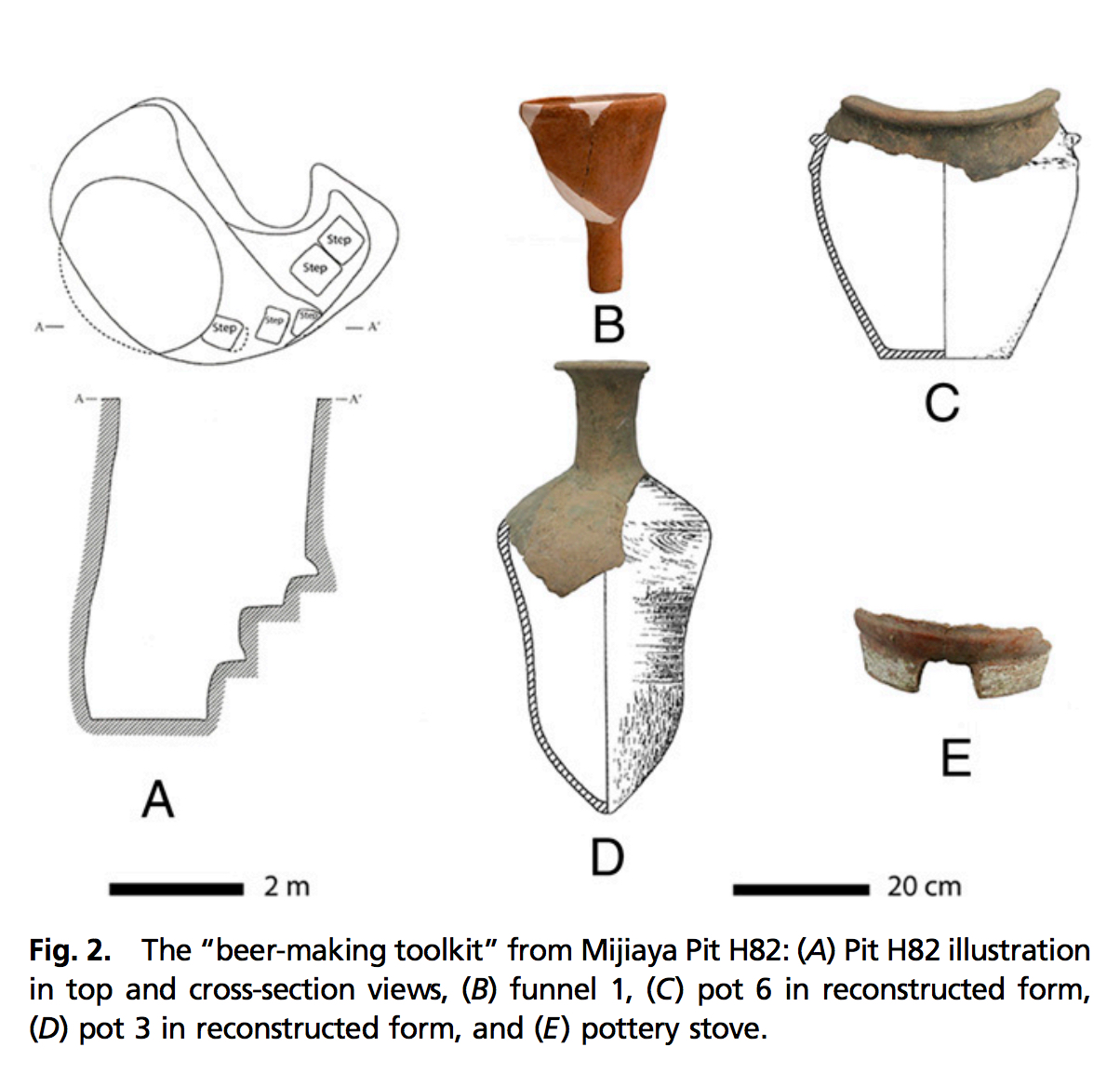In China, found a 5000-year-old brewery and learned the recipe for beer
Archaeologists have found a 5,000-year-old brewery in Shaanxi Province in central China. It belongs to the group of Neolithic archaeological cultures of Yanshao and is distinguished by a brewing system that is quite advanced for its time, including thermoregulation. Having studied the deposits in the ceramic dish, the scientists were able to derive an approximate formula of the drink.
Archaeologists have found two sets of tools for making beer, located in pits 2-3 meters deep, lined with stone. For easy access to the pits are steps. The hollows are equipped with shelves and ceramic ovens, where barley was once cooked in wide-necked pots.
Other equipment found that gives out the purpose of these breweries includes filtration funnels and fermentation amphoras for the beverage.

')
Scientists have found in the remains of millet, barley, wheat and willow tears (he is an ordinary potter - in the USA it is also called Chinese pearl barley). Also present are small amounts of the roots of the serpentine trichozant and lilies (these components are traditionally used in Chinese traditional medicine) and yams.
The discovery is several thousand years ahead of the first known written mention of fermented beer, dated 1240-1046 BC, belonging to the Chinese dynasty Shang.
The researchers were surprised that already at that time people were aware of complex beer recipes with temperature regulation, brewing and malt preparation.
Archaeologists have even suggested that it was beer that motivated the penetration of barley into China from western Eurasia - it is known that he came to China in just this way and by 200 BC. already widely used by farmers. Barley - one of the oldest cultivated plants in the history of mankind, it began to be cultivated about 10 thousand years ago. And perhaps, this culture first of all began to be used by people for the preparation of alcohol, and only then - as food.
Archaeologists have found two sets of tools for making beer, located in pits 2-3 meters deep, lined with stone. For easy access to the pits are steps. The hollows are equipped with shelves and ceramic ovens, where barley was once cooked in wide-necked pots.
Other equipment found that gives out the purpose of these breweries includes filtration funnels and fermentation amphoras for the beverage.

')
Scientists have found in the remains of millet, barley, wheat and willow tears (he is an ordinary potter - in the USA it is also called Chinese pearl barley). Also present are small amounts of the roots of the serpentine trichozant and lilies (these components are traditionally used in Chinese traditional medicine) and yams.
The discovery is several thousand years ahead of the first known written mention of fermented beer, dated 1240-1046 BC, belonging to the Chinese dynasty Shang.
The researchers were surprised that already at that time people were aware of complex beer recipes with temperature regulation, brewing and malt preparation.
Archaeologists have even suggested that it was beer that motivated the penetration of barley into China from western Eurasia - it is known that he came to China in just this way and by 200 BC. already widely used by farmers. Barley - one of the oldest cultivated plants in the history of mankind, it began to be cultivated about 10 thousand years ago. And perhaps, this culture first of all began to be used by people for the preparation of alcohol, and only then - as food.
Source: https://habr.com/ru/post/394555/
All Articles